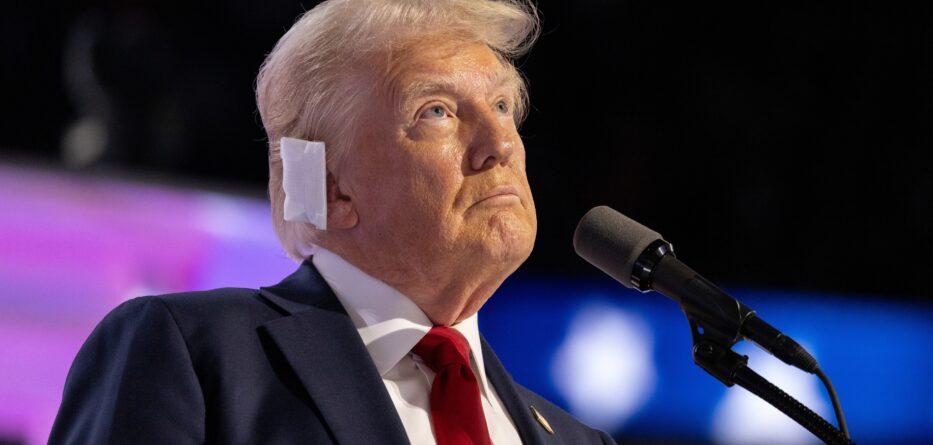
Judge Rules Against Trump’s Arts Policy, Citing Free Speech
A federal judge has just handed down a big ruling that blocks the Trump administration from restricting arts grants based on so-called “gender ideology.” In a 45-page opinion, U.S. District Judge William E. Smith called the National Endowment for the Arts (NEA) policy unconstitutional, arbitrary, and flat-out discriminatory.
The case, brought by four arts organizations and backed by the ACLU, challenged a rule that forced applicants to steer clear of projects with transgender or nonbinary themes if they wanted federal funding. Smith’s decision halts the policy nationwide, stressing that arts funding should be about “artistic merit and excellence,” not political litmus tests.
How We Got Here
On January 20, 2025, President Trump signed an executive order directing agencies to stop funding anything that promoted “gender ideology.” The NEA responded with a new rule requiring applicants to certify they wouldn’t cross that line. After initial pushback, the policy was softened but still allowed officials to downgrade projects seen as promoting those themes.
Groups like Rhode Island Latino Arts, National Queer Theater, and The Theater Offensive sued, arguing the rule violated free speech and forced artists to self-censor. Judge Smith agreed, saying the policy turned the NEA into a “government propaganda machine.”
The Ruling
Smith’s opinion cut straight to the heart of the issue:
- First Amendment: The rule punished artists for their viewpoint, which is unconstitutional.
- Administrative Law: The NEA never explained what “gender ideology” means or how it relates to artistic merit.
- NEA Statute: The agency’s job is to support expression, not police it.
“The NEA was designed not as an instrument of political communication but as a vehicle for private expression,” Smith wrote.
What’s Next
The Trump administration hasn’t filed an appeal yet, but it has 30 days to do so. A challenge could eventually land at the Supreme Court, where free speech rulings have gone both ways.
For now, artists are celebrating. “This is a huge victory for free expression,” said ACLU attorney Chase Strangio. Arts groups echoed the sentiment, saying the ruling ensures creators don’t have to hide their stories to get support.
Why It Matters
This decision fits into a larger trend: courts pushing back against Trump-era attempts to cut off funding tied to diversity, equity, and gender issues. Similar policies on health care and scientific research have already been struck down.
-
Credit: Shutterstock Trump Called to Rescind Jan. 6 Pardons Pressure is building on President Donald Trump to take back...
-
Credit: Shutterstock Trade deficits, national debt, and the numbers that don’t add up President Donald Trump recently caused a...
-
Credit: Shutterstock What Followed After Charlie Kirk’s Death Attorney General Pam Bondi cleared things up today after getting some...
-
Arnold’s Tribute to Charlie Kirk The nation is still reeling from the shocking assassination of Charlie Kirk, the 31-year-old...
-
Credit: Shutterstock Biden Family Faces Renewed Corruption Claims After FBI Document Release Newly declassified FBI documents are stirring up...
-
Credit: Shutterstock Why the Federal Reserve’s Rate Cut Plan Is Stirring Up Trouble The Federal Reserve is about to...
-
Credit: Shutterstock Craziest Week in the USA By Far Hey, America, if you thought things were tense before, buckle...
-
Credit: Shutterstock How a $345 Billion Gap Raises Alarms for U.S. Finances The U.S. Treasury Department reported a federal...
-
Credit: Shutterstock MAGA Fury Erupts as 5-4 Ruling Thwarts Trump’s Election Playbook Donald Trump is back at it, stirring...
-
Credit: Shutterstock Rep. Ilhan Omar (D-Minn.), a prominent member of the progressive “Squad,” is facing sharp criticism after laughing...
-
Credit: Shutterstock Charlie Kirk Shot at Utah Valley University Event On September 10, 2025, Charlie Kirk, the founder of...
-
Credit: Shutterstock Is Israel Really Our Ally? Israel’s airstrikes on Doha, Qatar, on September 9, 2025, didn’t just eliminate...


















